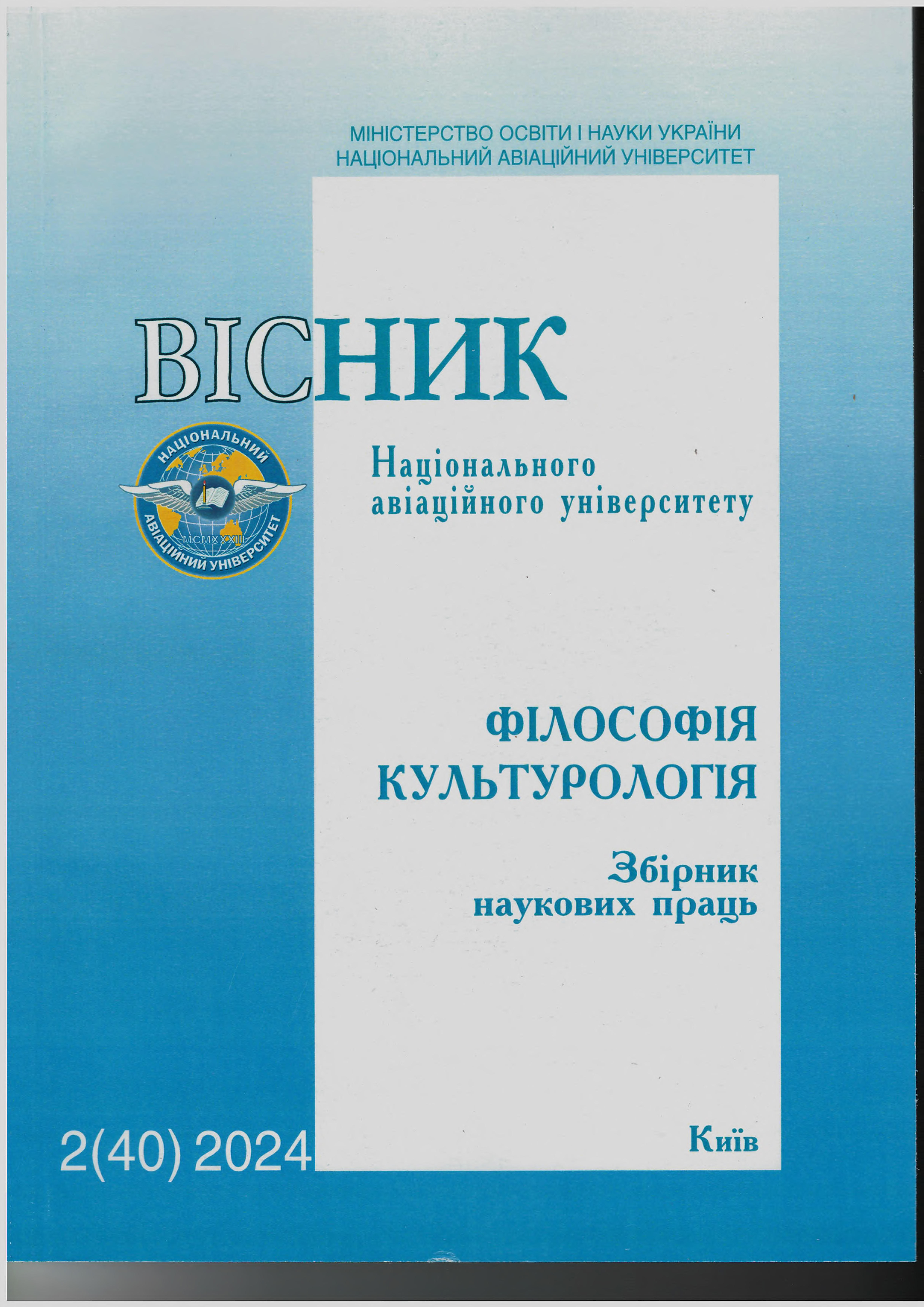EDUCATIONAL DIMENSIONS OF CONSCIOUSNESS TRANSFORMATION IN THE DIGITAL SOCIETY
DOI:
https://doi.org/10.18372/2412-2157.40.19346Keywords:
technoscience, digital society, information technologies, personality, education, educational technologies, virtual space, social, artificial intelligenceAbstract
The 21st-century individual faces challenges stemming from the superficiality of "clip communication," which lacks a profound worldview as a foundation for ontological and axiological understanding. Education, once a societal good, has been reduced to a market service, leaving unresolved the question of forms capable of effectively transforming human consciousness in the digital age. The aim and tasks are identifying the features of the transformation of modern human consciousness and the new forms of its communication in the context of digitalization. Research methodology combines general scientific and philosophical methods, enabling the analysis of contemporary educational processes and the further transformation of human consciousness. A comparative approach facilitates the evaluation of researchers' forecasts and insights regarding future solutions to educational challenges. Research results. The implementation of new technologies, which have evolved from auxiliary tools enhancing comfort and quality of life into a dominant factor, significantly influences human behavior, culture, and education systems. Digitalization transforms the process of shaping consciousness in the new era, while virtual space, increasingly replacing physical space, becomes a testing ground for humanity's survival and the preparation of future generations. In this context, digital literacy, understanding new tools, and competence in technological solutions are essential skills for the 21st-century individual. Discussion. The transformation of the information and educational space, where individualized online education is being formed, raises the question of how modernization should be implemented to foster cross-cultural values in a generation born into the digital world, unfamiliar with any other realities. Conclusions. The Internet expands the cultural space, creating a multi-cluster structure in which individual clusters may remain isolated, like Leibniz’s monads. This leads to the transformation of socialization in the real world and enhances the possibilities of manipulating consciousness, highlighting the unpreparedness of many people to adapt to digital reality. In the period of the emergence of the information society, it is crucial to achieve a theoretical breakthrough, which can be facilitated by mathematics and philosophy. Key questions remain to be addressed: 1) For what kind of world are we reforming the educational space? 2) Will the highest universal values, such as love, freedom, and will, be preserved there? 3) What is the purpose of the knowledge gained through artificial intelligence regarding the management of people and machines? The information and educational space must become a controlled structure capable of ensuring individualized educational activities in a digital environment
References
Latour B. Reassembling the Social: An Introduction to Actor-Network-Theory. Oxford University Press. 2005. 320p. http://lib.ysu.am/disciplines_bk/515c78734ada7d325727d0cafa24d0e1.pdf
Castells, Manuel. 2002. The Internet Galaxy: Reflections on the Internet, Business, and Society. Oxford University Press. https://doi.org/10.1093/acprof:oso/9780199255771.001.0001
Ашиток Н. І. Освітній простір як комунікативна система в глобалізованому світі. Вісник Національного авіаційного університету. Серія Філософія. Культурологія. Збірник наукових праць. 2023. № 2 (38). С. 62-65. DOI: http//doi.org/10.18372/2412-1257.2.18114.
Дротянко Л. Г. Унікальність людського буття у сучасних соціальних комунікаціях. Вісник Національного авіаційного університету. Серія Філософія. Культурологія. Збірник наукових праць. 2024. № 1 (39). С. 5-10. DOI: http//doi.org/10.18372/2412-1257.39.18424.
Ісакова Т. О. Інтернет-залежність як новий феномен сучасного світу: сутність і проблеми. К. : НІСД, 2011. 47 с.
Кастельс М. Інтернет-галактика – Міркування щодо Інтернету, бізнесу і суспільстваю К.: Вид-во ВАКЛЕР, 2007. 304 с.
Комісар Л. П. Культура мислення як сучасний тренд: теоретичний і прикладний аспекти. Вісник Національного авіаційного університету. Серія Філософія. Культурологія. Збірник наукових праць. 2024. № 1 (39). С. 42-47. DOI: http//doi.org/10.18372/2412-1257.39.18450.
Коляда І. Трансформація інформаційно-освітнього простору в контексті сучасних соціокультурних процесів. Вісник Дніпровської академії неперервної освіти. 2022. № 2 (3). С. 20-26. (Серія Філософія. Педагогіка). DOI. https://doi.org/10.54891/2786-7005-2022-2-3
Харченко Ю. В. «Віртуум» як інноваційне середовище в «цифровій цивілізації» (філософсько-гносеологічний та онтологічний аспекти). Вісник Національного авіаційного університету. Серія Філософія. Культурологія. Збірник наукових праць. 2023. № 2 (38). С. 18-23. DOI: http//doi.org/10.18372/2412-1257.2.18105.


